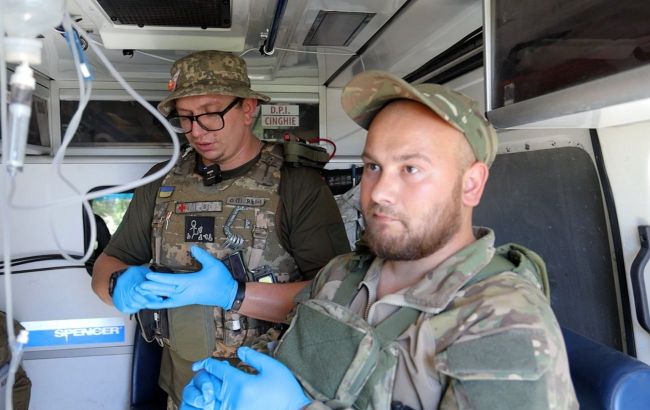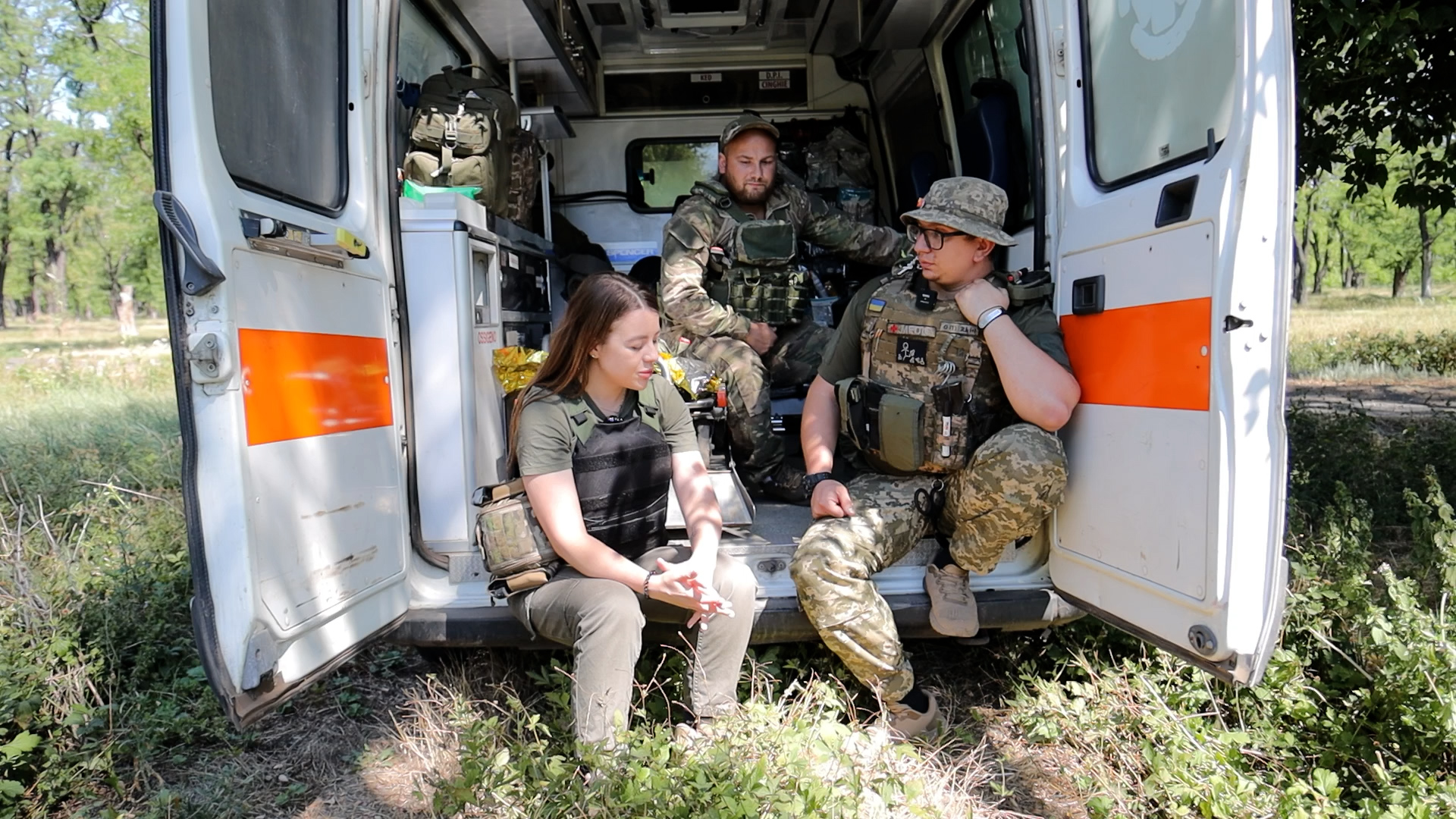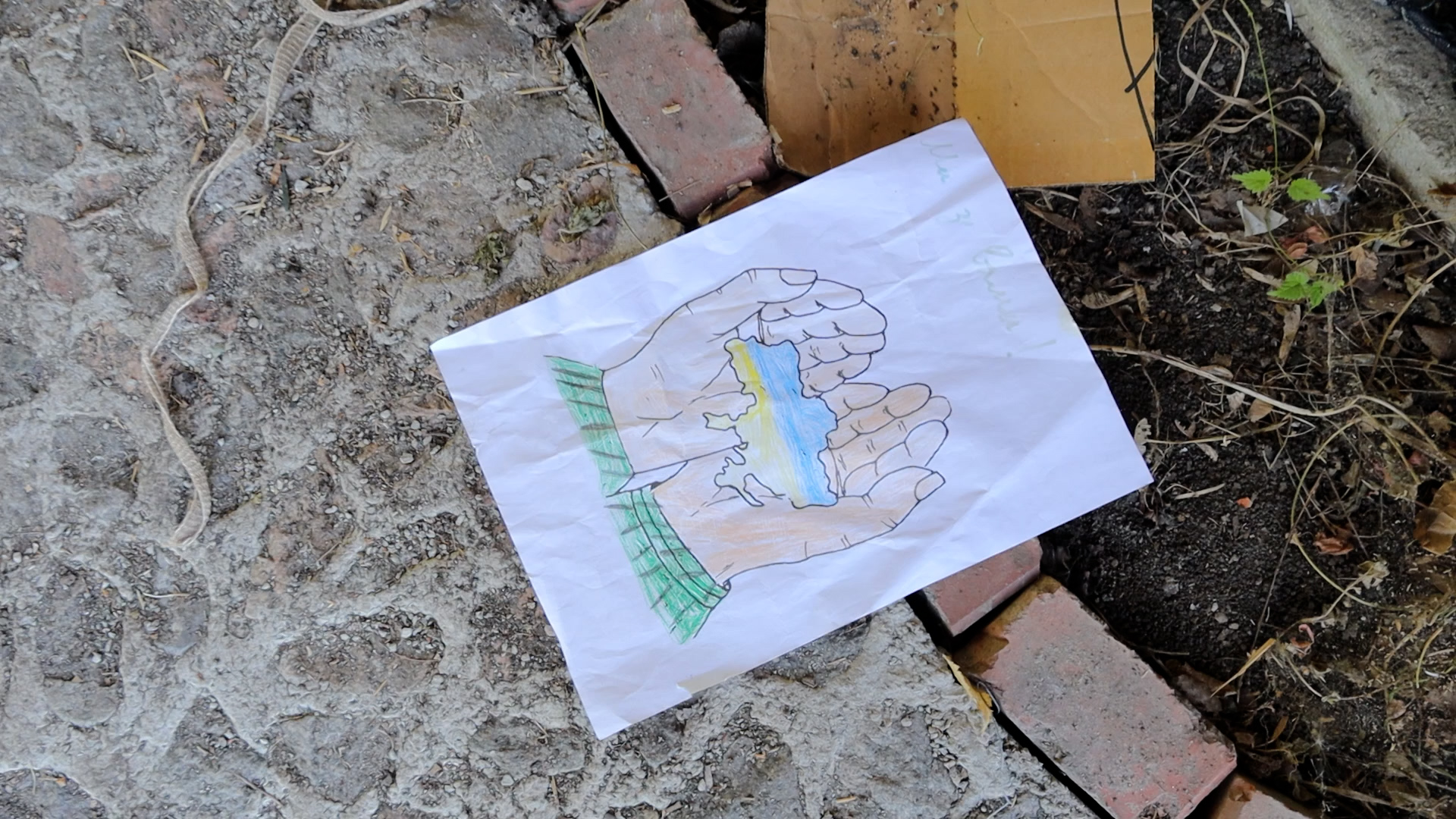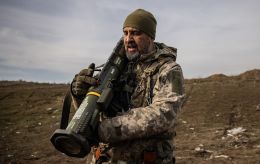Medics are prime target for enemy: How 68th Jaeger Brigade's medevac crew saves lives near Pokrovsk
 Medics of the 68th Jaeger Brigade evacuation crew Oleksandr and Stas (all photos: RBC-Ukraine)
Medics of the 68th Jaeger Brigade evacuation crew Oleksandr and Stas (all photos: RBC-Ukraine)
Aid is delivered at breakneck speed by medevac, sometimes literally holding onto the rails to stay on their feet. The enemy tracks each evacuation vehicle, and medics are a prime target for them, members of the 68th Jaeger Brigade's medical evacuation crew near Pokrovsk told RBC-Ukraine.
'Two from a madhouse' crew
Oleksandr and Stas, medics of the 68th Jaeger Brigade's evacuation crew, met long before serving in the Armed Forces of Ukraine. Both are from the Khmelnytskyi region and have medical education. At one point, their career paths crossed in a psychiatric hospital. When the full-scale war began, the men were called up for military service into the same battalion. Now, they evacuate the wounded together on one of the most difficult areas of the frontline.
"When we saw each other, it was just like in that well-known meme: 'Are you here? I’m here! We’re both here'," Oleksandr recalls.
Comrades sometimes work in different crews, but they try to respond to severe injuries together for more effective teamwork. They understand each other better and are confident that this increases the chances of saving the soldier. While one inserts a catheter, the other is already holding the hand and setting up the intravenous line.
"If we’re working on a severely injured person together, I don’t even need to say anything. We just look at each other and understand. Once, a soldier had a low pulse, and we were thinking whether to use adrenaline or not. But we thought about it, looked at each other for a second, and agreed that we didn’t want to risk brain swelling," Oleksandr adds.
The medics near Pokrovsk constantly deal with wounded soldiers of varying severity, including limb, head, and abdominal injuries, the latter being the most critical.
"There was a case where a soldier’s entire "inner world" became his "outer world." During the transportation, I was like the keeper of his "inner world". We used an abdominal bandage and kept it moist with regular water," Oleksandr says.

Photo: The medics met long before they joined the Armed Forces and now often work together
When necessary, the medics perform artificial lung ventilation and resuscitation. Their main task is to do everything possible to get the wounded soldier to a stabilization point alive. This is not easy, given the broken roads of Donbas and the constant shelling, which the Russians direct even at medics. According to the Geneva Conventions, targeting medical vehicles and crews is prohibited, but the Russians blatantly disregard all laws and rules of war.
As we drive toward the evacuation point, smoke columns and burning fields are visible in the background. The medics explain that these are the aftermath of the guided bomb explosions. Our medical vehicle shakes as it hits potholes in the asphalt.
The lives of people depend on the reliability of the vehicle, but unfortunately, they constantly break down and require repairs. Weather conditions also significantly affect the roads. It’s especially hard to drive in heavy rain, and time is always short - they need to get to the place quickly to save lives.
"We have not had a case in as long as we have been here that we didn’t make it. We bring everyone in any condition, but alive," says medic Stanislav.
"Are you a magical medevac?" I ask the crew.
"No, we’re just "Two from a madhouse." So, there are no other options," they reply with a laugh.

Photo: People's lives depend on the serviceability of medical vehicles. However, cars often break down and require repairs
In addition to providing first aid, the medics must constantly stay in contact with the wounded and help ease their psychological state. They explain that soldiers, both men and women, are often in a semi-conscious state and worried about their health after being injured. It’s important to keep them distracted.
"To be honest, dark humor helps a lot. There was one guy who hit a mine. He was in such a state that he barely spoke and was in a confusional state. But by the time we got him to the stabilization point, he was already telling us to stop making him laugh because he couldn’t laugh," Oleksandr says.
Ukrainian medics also have to treat captured Russian soldiers. Unlike the Russians, who torture Ukrainian soldiers, the medics treat Russian POWs according to the laws of humanity. They always provide medical aid, don’t harm them, and speak with them civilly. Still, the medics notice some differences.
"Once, we brought in a Russian. I started giving him first aid - he had a hand injury. It was so stinking blood, I had never encountered such blood before. I’ve worked with drug addicts, and I’ve never smelled blood like that," Stanislav recalls.
.jpg)
Photo: The main task of the medics is to do everything possible to bring the wounded man alive to the stabilization point
'Boar' point
Along with the medevac crew, we drive the evacuation route they take daily and arrive at the point called "Boar." This is where wounded soldiers are brought in from the frontlines. The place is hair-raising. On the ground, there are children's drawings for the soldiers, which they took with them on combat missions. There are many bloodstained pieces of clothing, military boots, headsets from armored vehicles, and black body bags used to transport the fallen.
"We take everything off, leave it here, and their commanders come to take it away. Sometimes they bring several soldiers from different units, and the commanders come to see where their weapons are," Stanislav explains.
During injuries, the medics have to cut off all the soldiers' clothing to find the place of injury and examine the entire body. But often even the cut clothes are kept as a memento.
"Women and girls often give them shirts. The soldiers take them with them, covered in blood and shrapnel. It becomes a sort of talisman for them."

_2.jpg)
Photo: Children's drawings of soldiers lying on the ground, which they took with them on combat missions
The medics themselves also have talismans. Oleksandr has a small pink hair clip attached to his hat, which his daughter accidentally left in his father's things during his vacation. Since then, he’s kept it as a reminder of who he is serving for.
Stanislav also has a one-year-old son waiting for him at home. His son is still too young to understand that his father is at war. This, Stanislav says, motivates him to keep going, so his son can grow up never knowing what war is.
The places where the medevac crew works are soaked in blood and filled with hope for life. Every day, these two medics pull soldiers, men, and women, from the clutches of death, promising them life and doing everything they can to keep that promise. It’s a tough job, and as the medics say themselves, “We are not at a resort here.” But they stand guard 24/7, ensuring that each soldier has a chance to return home alive to their loved ones.

